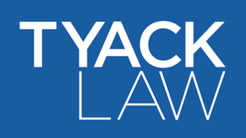
If you are thinking about filing a personal injury lawsuit, one of the primary questions you might have is how much money you can receive in damages to help you deal with the financial impact of your injury.
Compensatory damages are the most common form of compensation plaintiffs receive in personal injury lawsuits. However, in some instances, punitive damages might also be awarded.
Are you wondering what the difference is between compensatory vs. punitive damages?
Let’s take a look at the similarities and differences to help you understand the different types of damages that can be awarded in personal injury cases.
What Are Compensatory Damages in Personal Injury Law?
In most instances, personal injury damages are considered compensatory. This means that the damages are intended as compensation for the injured party for the losses that were caused by the injury or accident.
The intent behind compensatory damages is to help make the plaintiff “whole” again financially, to the extent that doing so is feasible. What this means is that compensatory damages attempt to ascribe a dollar amount to all of the consequences that resulted from the event.
In some cases, it is fairly easy to quantity compensatory damages. For example, reimbursement for medical bills or property damage already has a dollar figure attached to them. In other instances, though, this isn’t as simple.
An example of this is ascribing a monetary value to a person’s loss of quality of life or “pain and suffering.”
What Are Punitive Damages in Personal Injury Cases?
It is far less common for there to be Ohio personal injury punitive damages, but it does occur. In most cases, personal injury damages are compensatory. However, in situations where the conduct of the defendant is determined to be outrageously negligent or egregious, the plaintiff might be awarded punitive damages in addition to compensatory damages.
While punitive damages are awarded to the injured party, the true intention of this type of damage is to provide punishment for the conduct of the defendant. Punitive damages go beyond trying to make the plaintiff financially whole and serve to act as a deterrent to the defendant and others who might act similarly.
Most states have placed legal caps on the number of money plaintiffs can be awarded in the form of punitive damages. Punitive damages in Ohio are capped at twice the amount that is being awarded in compensatory damages.
If the defendant is an individual or a small employer, the cap is 10% of their net worth or twice the compensatory damages, whichever is smaller. In these cases, the maximum amount that can be awarded in the form of punitive damages is $350,000.
Compensatory Vs Punitive Damages: What Are the Differences?
The primary difference between compensatory damages and punitive damages in Ohio is the effect each type of damage is intended to have on the two opposing sides of a personal injury case.
Compensatory damages intend to compensate the plaintiff for their losses due to the accident, while punitive damages are intended to punish the defendant for their actions.
Are You Searching For a Personal Injury Attorney in Ohio?
An experienced personal injury attorney can help you understand the different types of personal injury cases for compensatory damages and determine whether or not you might also qualify for punitive damages. However, it’s worth understanding that punitive damages are typically only awarded if the actions of the defendant were particularly egregious or negligent.
Understanding the difference between compensatory vs. punitive damages can help you get a sense of what damages you might receive from your case.
Determining the financial impact of your injury is not always straightforward. That’s only one of the reasons why it is advisable to work with a knowledgeable personal injury lawyer if you are filing a personal injury claim. If it’s time for you to talk to a lawyer, contact Tyack Law today.
Talk with an experienced Lawyer today
Fill out the form to get started with your case evaluation.













